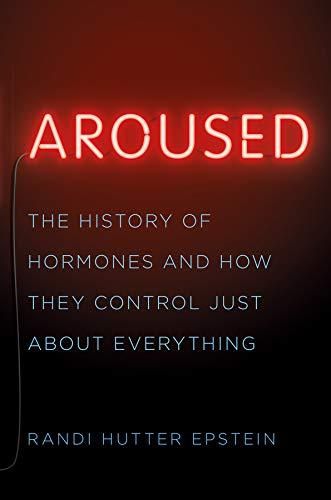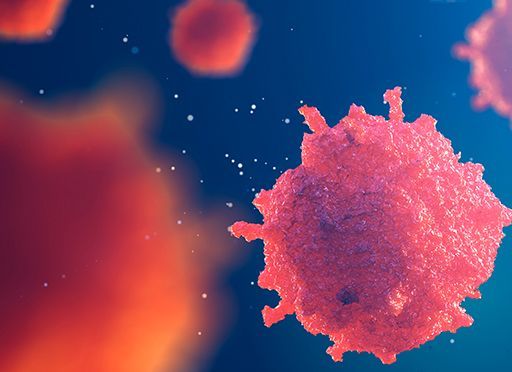Randi Hutter Epstein, MD, MPH offers a lively, accessible discussion of the role of hormones in the human body, the history of medical discoveries relating to hormones and hormones’ function in transgender identities.

Hidden Forces at Work
Author of Get Me Out, Randi Hutter Epstein, MD, MPH is an adjunct professor at Columbia University, a lecturer at Yale University and writer in residence at Yale Medical School.
Epstein combines fascinating historical anecdotes and scientific data to explore the power and mystery of the effects of hormones in the human body. From the earliest crude grinding of glands to breakthroughs in the burgeoning field of endocrinology to modern genetic research, Epstein shows how hormones affect all bodily systems as well as growth, appetite, sex drives, moods and metabolism. Her knowledgeable, witty approach makes the subject fascinating.
Reviewers admire Epstein’s merging of the scientific and the all-too-human. The New Yorker said, “The field of endocrinology, as this compelling history shows, has manifested extremes of ingenuity and hubristic error.” Siddhartha Mukherjee, author of The Gene: An Intimate History, calls this, “A sweeping, glorious story of hormones, threaded through with sex, suffering, neurology, biology, medicine and self-discovery.”
Endocrinology
Epstein characterizes the body’s nervous and circulatory systems as an information highway and hormones as a wireless network.
Hormones are pinballed from one cell in one part of the body and reach faraway targets – no connections needed.Randi Hutter Epstein
She explains that nine glands produce hormones: the pineal, hypothalamus and pituitary in the brain; thyroid and parathyroids; pancreas, adrenals, ovaries and testes. Hormones control metabolism, growth, sleep, moods, immunity, sex drives and puberty.
Harvey Cushing
Epstein cites the groundbreaking experiments of Harvey Cushing, who discovered that brain tumors release a chemical that stimulates the adrenal glands to produce excess hormones, resulting in weight gain, facial hair, weakness and libido loss. That hormone would later be identified as cortisol, which controls the immune system, blood pressure and metabolism. Cushing’s work showed for the first time, Epstein celebrates, that unbalanced hormone levels cause an array of diseases. He published his findings in 1912’s The Pituitary Body and Its Disorders; Epstein regards it as a combination of theory and fact.
In Cushing’s era, Epstein reports, scientists isolated estrogen and progesterone; in 1922, doctors saved the life of a diabetic with insulin shots. Epstein cites Harvard professor Walter Cannon for linking hormone secretions to changes in mood.
Testosterone and Estrogen
Epstein credits Dr. Georgeanna Seegar Jones, her husband Dr. Howard W. Jones, Jr. and researcher Robert Edwards as the first to fertilize a human egg outside the body. The Joneses performed America’s first successful in vitro fertilization and Edwards created the world’s first test-tube baby. Seegar Jones, Epstein reveals, discovered a pregnancy hormone in the placenta, now known as hCG, an acronym for human chorionic gonadotropin and often prescribed to women during fertility treatment.
Scientists now realize that human bodies are intricately laced with interconnected, microscopic hormones which cause a myriad of impacts on health and behavior. In fact, hormones control ‘just about everything’.Randi Hutter Epstein
A team at Johns Hopkins, Epstein relates, developed treatments and surgical techniques to transform ambiguous babies into girls or boys. The doctors reported that many lived emotionally stable lives. Today’s doctors, Epstein stresses, generally tell parents not to rush any gender decisions and to offer surgery only as a choice.
Gender Transition
About 1.4 million American adults, Epstein reports, are considered transgender. In the 20th century, some decided to have unwanted sex organs surgically transformed or removed. So far, as Epstein makes clear, no specific biological or physical markers for being transgender have emerged, though genes, hormones and environmental exposures may play a part.
Because hormone therapy can produce side effects such as heart disease or strokes, and will not remove all the changes that puberty causes, Epstein notes that many doctors recommend that transgender patients start therapy at a young age. Others warn that transgender surgery cannot fix emotional trauma. There is a disturbing trend, Epstein warns, toward suicide in transgender patients.
Eating Disorders
Epstein explains that in 1994, Dr. Jeffrey Friedman discovered a gene that produces the weight-controlling hormone leptin in fat cells and that fat is a type of endocrine organ. Leptin encourages the body to seek a genetic weight “set point.”
Were you born with a propensity to gain weight because of the brew of chemicals inside you, or did you acquire a fat-prone physiology because of your diet?
Epstein suggests that weight loss surgery may work because of its effect on hormones, rather than by simply reducing stomach space.
Pop Medicine
Epstein takes an almost pop approach to explaining hormones. She’s writing for the layperson and a mass audience, and at times the book resembles a cheery session on a talk show. But Epstein proves knowledgeable and determined to help readers understand their bodies and their bodies’ processes. She counters much conventional wisdom and offers new windows of understanding into transgender identity, surgery and psychology. Young readers will gain a foundational understanding and adults may experience surprise at how much they misunderstand about a mysterious force shaping much of their experiences, emotional and physical. Epstein’s accessible voice makes retaining her insights easy.
Among myriad books exploring human biology for the layperson, likely worthy companions to Aroused include The Molecule of More by Daniel Z. Lieberman, The Secret Female Hormone by Kathy C. Maupin and Lost Connections by Johann Hari.






